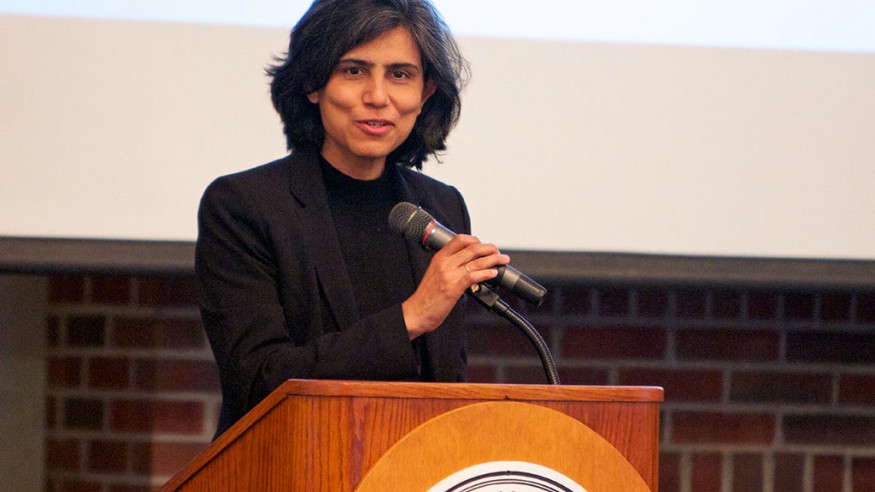
Fast Food Trends in India
Dr. Anjali Bhatia. (Photo by Mark Schmitter ’12)
Professor Anjali Bhatia first became interested in the fast food phenomenon within her native country of India in the 1990s, as the Indian economy became more liberalized. Since that time, she has become increasingly familiar with eateries such as McDonalds and several other Indian restaurants that have adapted similar fast food practices and products. Bhatia, Associate Professor of Sociology at Lady Shri Ram College for Women at the University of Delhi in India, recently spent several days on the OWU campus, in preparation for her October 1 Sagan National Colloquium presentation about the “Constitution of Childhood and Youth in Fast Food Eating Out Culture: Global-Local Dynamics in India.” While visiting OWU, Bhatia had opportunities to become immersed in university life, as she met with faculty members and students, attended the rededication of Stuyvesant Hall, met with members of OWU’s Board of Trustees during their fall meeting, experienced Family Weekend festivities, and attended a Sagan National Colloquium lecture about food justice.
Every society has its fast food alternatives,” says Bhatia, explaining that she was curious to observe the differences between fast food restaurants in India and other places.
“I started visiting McDonalds and two other establishments to better understand the fast food culture,” she says. “People did not perceive that what they were eating was unhealthy in any way.” However, Bhatia relates that when the McDonalds chain came to India, there was quite an outrage. “To Indians, it at first represented a certain kind of modernity as the brand became more important. We also saw, however, that McDonalds fit well into family life.” Going to “Macs” became a special treat for children—once in a while, she says. And parents admitted that occasionally, an outing to McDonalds was used as a kind of bribe attached to a child’s good behavior or outstanding performance. And then, there‘s the increasingly important convenience factor that makes life a little easier for busy families. As a sociologist, Bhatia’s research also touches on social structure and cultural practices—traditions—with regard to fast food options.
“I don’t think that societies can be changed totally,” says Bhatia, noting a trend toward more discussions about food geared toward health and nutritional values, cultural preferences, and more outwardly, issues about hunger and poverty. “It’s good that people want to talk about food—not just eat it,” says Bhatia.
Growing up in Delhi, Bhatia’s early interest in science shifted to sociology, and as she says, “I’ve never regretted it. Sociology helps me to understand society and people. Sociology gives me a respect for different cultures.” Bhatia received her master’s and Ph.D. from Jawaharial Nehru University’s Centre for the Study of Social Systems in India, and has taught at Lady Shri Ram College for Women since 1995.
